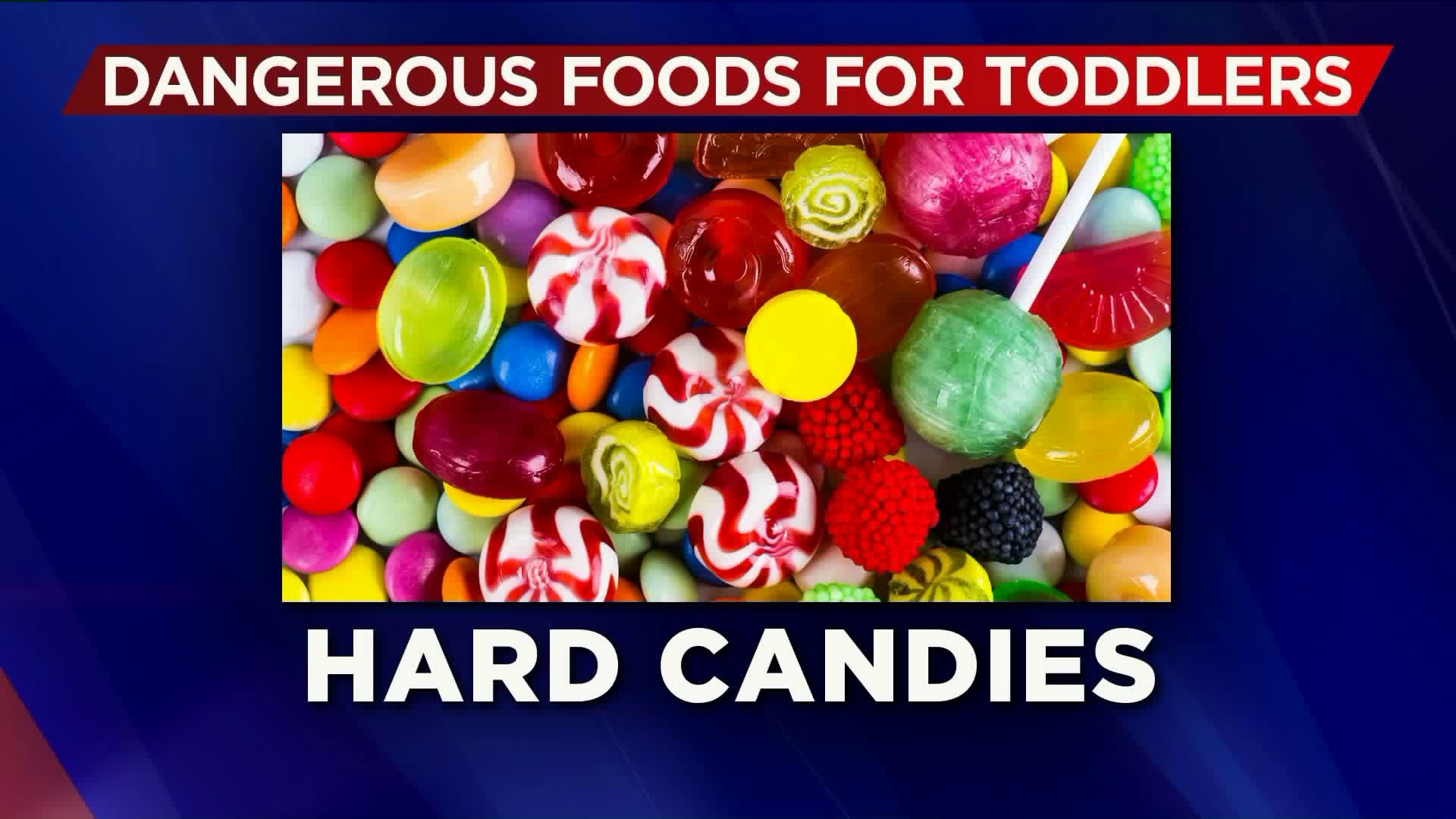Some of the things people may not think of as choking hazards are mozzarella sticks ( hot ones like that are served as appetizers) and oranges according to Dr. Lucia Benzoni at Hartford Healthcare. Even after oranges are crushed they still leave a mesh of fibers that babies and young children can choke on.
Major Food Choking Hazards:
- Hot dogs
- Meats, especially steak
- Hard candies
- Taffy
- Grapes
- Popcorn
- Gummy candies / vitamin etc
The biggest choking hazard is allowing your child to walk around when eating. even something as innocuous as a goldfish cracker can choke a child who suddenly falls, because during that fall they may have a sudden inhale and that cracker hits the vocal cords that then spasm cutting off air into the lungs. The continued presence of the food particles on the vocal cords are an irritant that can cause continual deprivation of air.
Do not attempt anything if a person is coughing when they aspirate a food particle - don't hit on the back or try to force a person to drink water, coughing is the body’s natural protection method and an effort to clear the irritant
If a baby is choking - DO NOT blindly stick your finger in their mouth to try to get the offending agent out - a blind sweep can actually force the object more firmly onto the vocal cords, worsening the situation. If you can see something in the mouth, ( like apiece of plastic from a grocery bag ) then it is safe to take it out.
Balloons are a big choking hazard - ESPECIALLY if a child bites them and then a small piece of the very flexible material goes into the trachea . The same holds true for plastic bags of any kind
Older children's toys, from older siblings can very dangerous. Items like Legos and Barbie doll shoes are very important to put out of reach of your baby.
As a general rule - any item that can fit through the opening of the cardboard tube of toilet paper it TOO small for any child under age 3
About age 9 months is when children really start putting everything in their mouth - they are developing mobility by crawling, so childproofing your home becomes crucial at this point.
It is also about this age they are starting to eat more table food. So it’s important to make sure the pieces of food are very small, and also squishable. Dr Benzoni tells parents that any food given to a child without a full set of teeth should be able to be crushed between your fingers and NOT leave a skin behind. Baby's gums are like fingers in a way - there are bones under the skin.
The Heimlich maneuver in infants is NOT the same as an adult, a choking infant should be placed head down , over your knee and an upward strike to the back is used to dislodge the item from the vocal cord. What you are trying to attempt is a big expulsion of air from the lungs to force the item up - and the child is upside down to enable gravity to assist with the outward trajectory.
Making an infant laugh while eating can cause any item to choke a baby. The food is in the mouth and a laugh causes a big intake of breath - bringing food particles with it.
Sometimes parents will give their child food while at the doctor’s office to try to placate them before or after vaccinations. Dr. Benzoni always asks them to refrain from feeding the child in the office because obviously sometimes what she does makes a baby upset and cause them to choke on whatever the parent has given them.
A very hazardous choking hazard is lithium batteries. These tiny batteries are not only a choking hazard but if for any reason they make it past the vocal cord into the lung, they are very caustic and cause a chemical burn. The same is true if these batteries are swallowed.
A common call Dr. Benzoni gets is one saying "my child had a coin in her mouth and I think she inhaled it". IF the parent is on the phone with me and not in an ambulance after calling 911 – she is fairly certain the child did not inhale the item but may very well have swallowed it. In this case it is certainly appropriate to seek medical care in your local ER. And it goes without saying if your child is choking, please do not call your doctor's office to ask if you should go to ER - just call 911!!
It is important however, for anyone caring for a child, to have some basic knowledge of what to do if a child it choking because there is not a lot of time to act.
A child who is truly choking will not be able to talk or to cough. There will not be air going in or out of the airway.

